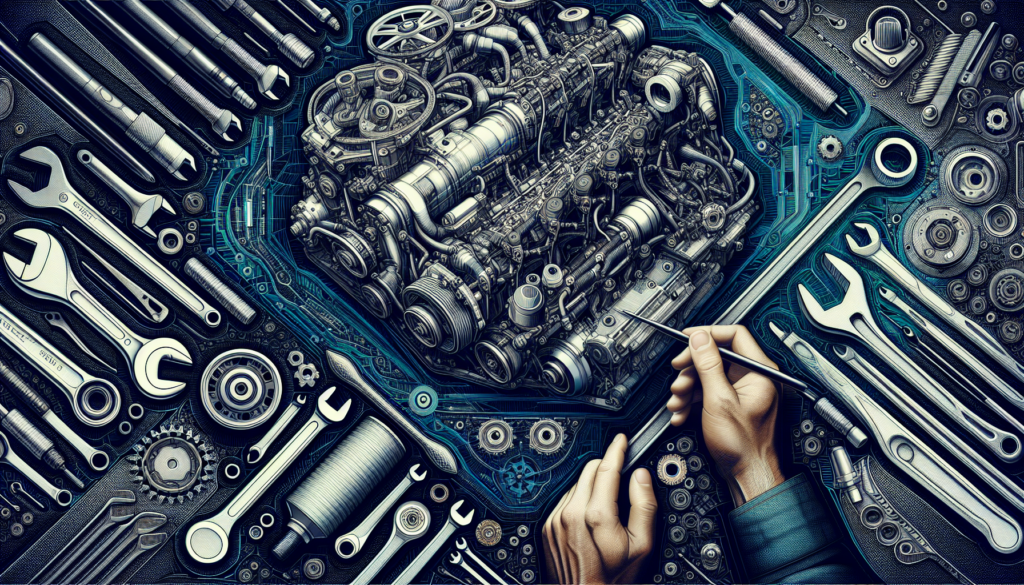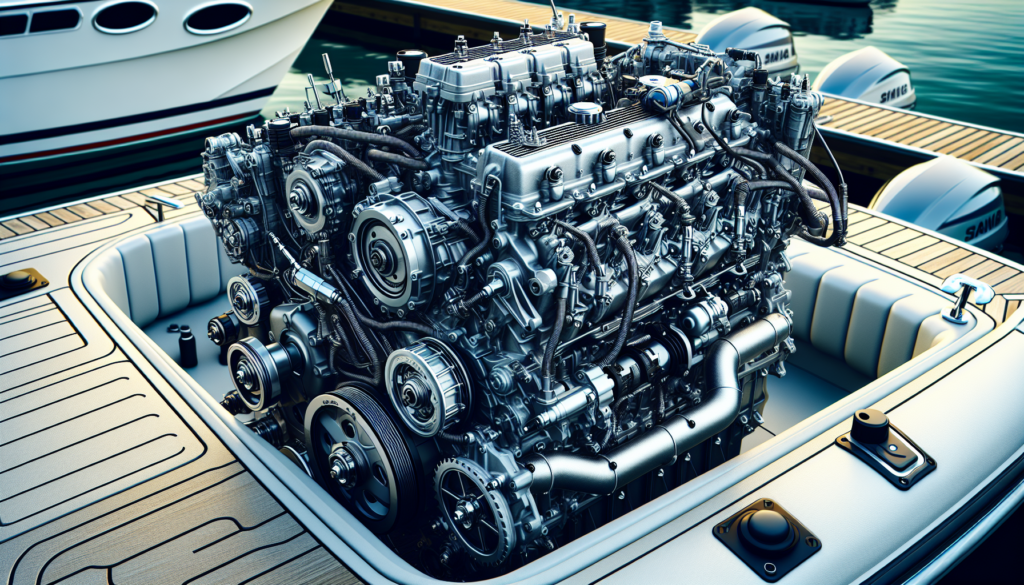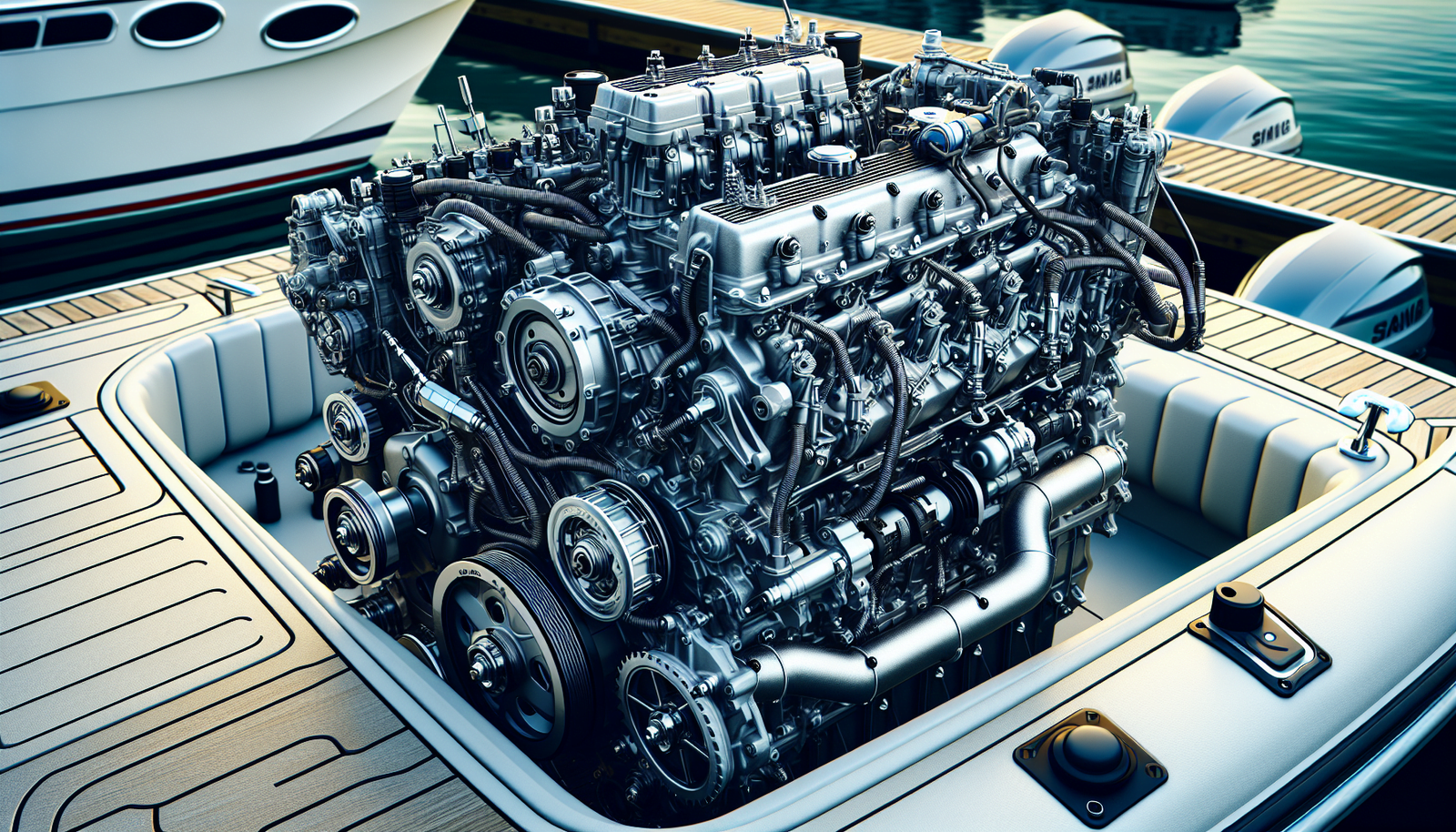So, you’re passionate about sailing and you’d like to make the most out of every trip on the sea. In this article, “Essential Boat Engine Maintenance Checklist,” you’ll discover the crucial steps to take care of the heart of your vessel – the engine. By following sensible advice and proven tactics, you can prevent breakdowns and get your boat back to tip-top shape in no time. This concise guide is all about helping you to prolong your engine’s life and ensuring it functions optimally whenever you’re ready to sail.
Understanding The Importance Of Regular Boat Engine Maintenance
Boats are investments worthy of proper care and maintenance regularly. One key aspect of this care revolves around engine maintenance.
Knowing the benefits of engine maintenance
Regular engine maintenance ensures your boat continues to function optimally, whether you’re out on a casual day trip or on a long fishing spree. Routine checks and timely repairs allow your boat to maintain peak performance, provide optimal fuel efficiency, and deliver a smooth, comfortable ride every time.
Realizing the consequences of neglecting engine maintenance
Neglecting engine maintenance, on the other hand, can spell disaster. The possible issues range from minor inconveniences, such as a rough ride to major problems such as engine failure. At sea, an engine failure isn’t just an inconvenience—it’s a safety hazard. Regular maintenance, therefore, isn’t just about enhancing performance—it’s also about ensuring safety.
How it lengthens the lifespan of the boat
Lastly, and more importantly, regular engine maintenance takes years off your boat’s life. By detecting and addressing issues early, you minimize wear and tear on your engine, which in turn extends the life of your boat significantly.
Comprehending Basic Boat Engine Anatomy
Before you can maintain an engine, you first need to know what makes one tick.
Learning about the boat engine and its components
A typical boat engine, irrespective of whether it’s an inboard or outboard, includes several key components: the propeller, the gearbox, the powerhead (which itself comprises the engine and the alternator), and the rocket (outboard engines) or transmission (inboard engines).
The significance of each part’s role in the engine
Each part plays a critical role in delivering a seamless boating experience. The propeller drives the boat forward, the gearbox controls speed and direction, and the powerhead generates the necessary power. Understanding these roles is critical when performing engine maintenance.
Understanding the engine’s fuel, cooling, and electrical systems
The engine efficiently combines fuel and air, ignites the mix to create energy, and cools down to prevent overheating. The electrical system, on the other hand, provides the necessary spark for ignition, powers your boat’s electronics, and charges the battery. Both systems, along with the engine, require regular inspection and maintenance.

Regular Visual Inspections
Visual inspections are as important as any intricate tune-up or engine check.
What to look for during a visual inspection
During a visual inspection, you’ll be checking for any noticeable changes or issues, such as rust, corrosion, leaks, or broken connections.
Identifying potential issues early
The aim is to spot potential problems before they cause notable damage. This early detection requires a keen eye and a basic understanding of what the engine is supposed to look like under normal circumstances.
When to seek professional help
While there are many maintenance tasks that you can do yourself, it’s vital to know when to bring in the experts. When you spot unusual changes or problems that seem beyond your ability to fix, it’s time to seek professional help.
Checking The Motor Oil
Motor oil is the lifeblood of your boat’s engine.
How often to change boat motor oil
Regular oil changes keep your engine running smoothly. As a rule of thumb, you should change the motor oil every 100 hours of operation or at least once a year, whichever comes first.
Choosing the right motor oil for your boat
Choosing the right oil is equally important. Refer to your engine manual to find the correct oil grade and viscosity for your specific model.
Recognizing signs of oil problems
Keep an eye out for signs of oil problems in-between changes. These could be: oil that looks milky (which could indicate a coolant leak), oil with a strong gasoline smell (which could point to a fuel leak), or dark, dirty oil (which suggests it’s time for a change).

Maintaining The Fuel System
A clean and well-maintained fuel system ensures optimal engine performance.
Using proper fuel for your boat
Making sure you’re using the right fuel is the first step. Always use the recommended fuel type — and remember, not all engines are designed for ethanol-based fuels.
Avoiding fuel contamination
Keep your fuel system dry and clean to avoid contamination. Water or dirt in the fuel can lead to engine problems.
Cleaning and replacing fuel filters
Regularly clean your fuel filters and replace them as per the manufacturer’s recommendation. A clogged filter will prevent your engine from getting the clean fuel it needs.
Inspecting And Maintaining The Cooling System
The cooling system keeps your engine from overheating, which could cause severe damage.
Looking for signs of cooling system problems
Signs of problems with the cooling system include overheating, coolant leaks, or a sweet, syrup-like odor.
Cleaning the cooling system
A clean cooling system is more efficient. Regularly flush the system with fresh water to remove any dirt or salt deposits that could cause corrosion or blockage.
Maintaining the thermostat and water pump
Finally, don’t forget to periodically check the thermostat and the water pump. These components play crucial roles in keeping the entire cooling system working properly and preventing your engine from overheating.

Ensuring Electrical System’s Efficiency
The electrical system is the heart of all the operations of your boat and it’s vital to keep it in good working condition.
Regular checks of battery and connections
A healthy battery means a reliable engine. Regular checks ensure the battery is well-charged and the connections are clean, corrode-free, and secure.
Maintaining the alternator and starter
The alternator charges your battery while the engine is running. The starter cranks the engine when you turn on the ignition. Regular checks and maintenance are essential to keep them both in shape.
Periodic inspection of wiring and circuits
Periodically inspect all the wirings and circuits. Look out for loose connections, corroded wires, or burnt fuses.
Proper Propeller Maintenance
The propeller is at the receiving end of a lot of hard use and requires proper care.
Inspecting the propeller for damage
Regularly check the propeller for any signs of damage. Dents, cracks, or distortions can hamper performance and fuel efficiency.
Lubricating and cleaning the propeller
Proper lubrication and cleaning help keep the propeller spinning efficiently. Remember to clean off any seaweed or fishing line that may have gotten tangled around the shaft.
Balancing and tuning the propeller
A properly balanced and tuned propeller ensures optimal performance and extends its lifespan.

Yearly Tune-Up and Professional Inspection
No matter how systematically you maintain your boat engine, an annual check-up by a professional remains indispensable.
Importance of periodic professional inspections
A professional inspection not only complements your maintenance routines but also can catch any major issues that could have been easily overlooked.
What to expect during a professional inspection
During a professional inspection, the mechanic will closely inspect the engine, check hose connections, test the electrical system, and look for signs of damage or wear and tear that might need attention.
Choosing a reliable marine mechanic
Choose a professional who is experienced and knowledgeable. Their insights and recommendations can keep your boat in ship-shape condition.
Creating An Engine Maintenance Schedule
Consistency in maintenance checks ensures that no important task gets missed out on.
Organizing regular maintenance tasks
Create a schedule that catalogues when each specific maintenance task needs to be performed. This way, you can ensure nothing gets overlooked.
Log keeping for engine maintenance
Keep a log of all your maintenance activities. Include date, type of check or maintenance performed, and any issues found and rectified.
Sticking to the maintenance schedule
Lastly, make it your routine. Once you’ve created a maintenance schedule, stick to it. Regular maintenance is the key to extending the life of your boat engine, and ultimately, your boat.
So, there you have it—the essential guide to boat engine maintenance. From understanding the importance of regular checks to knowing your boat’s engine parts and from regular inspections to proper oil and fuel system maintenance, these basics ground you firmly in your role as a boat owner.

